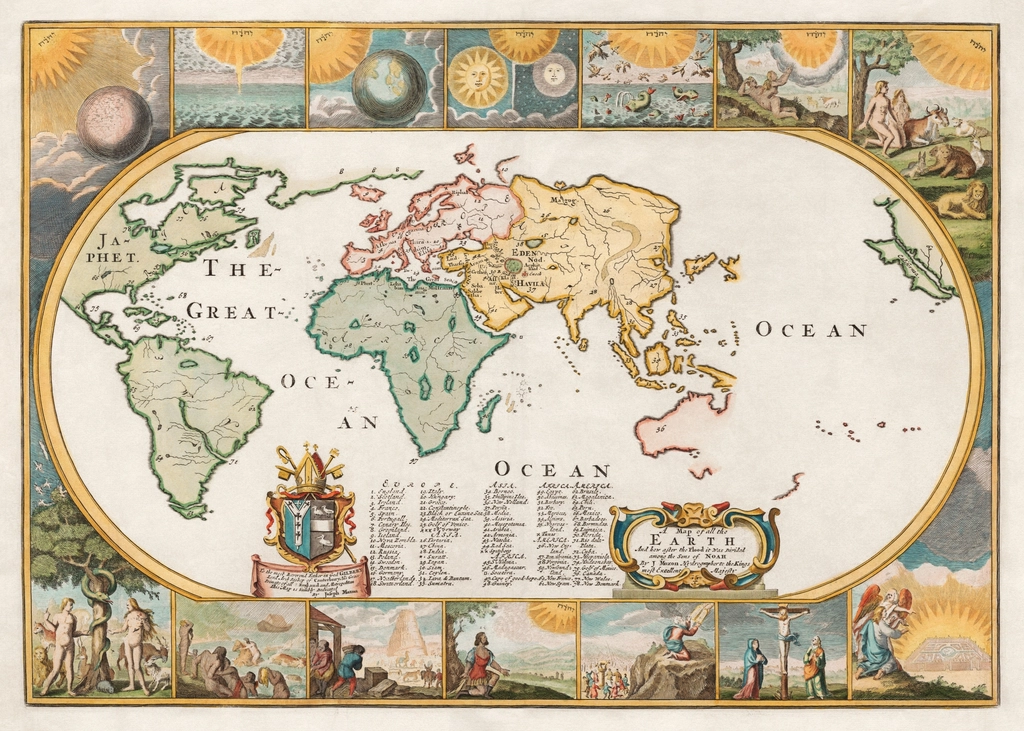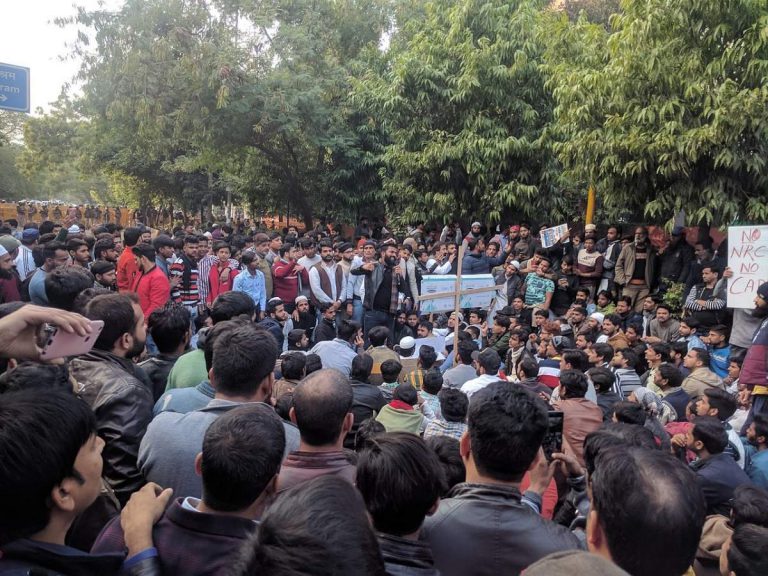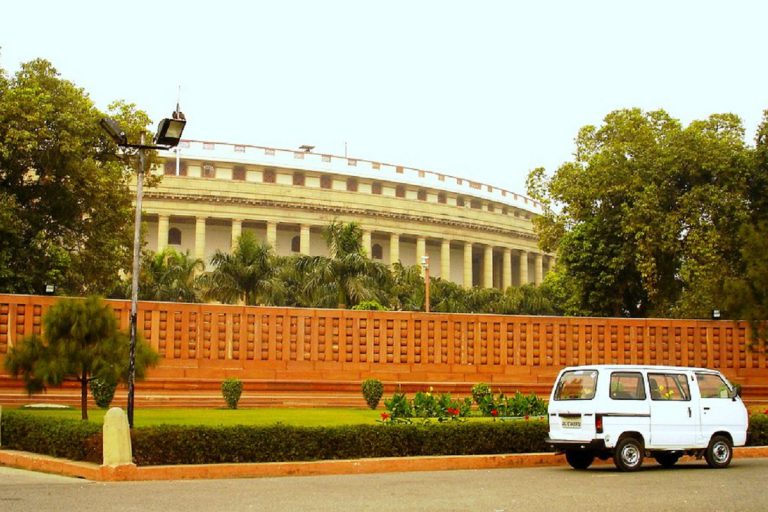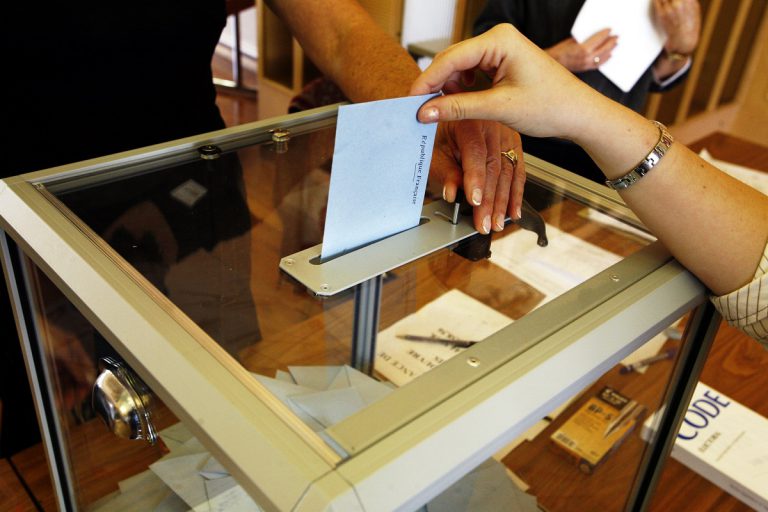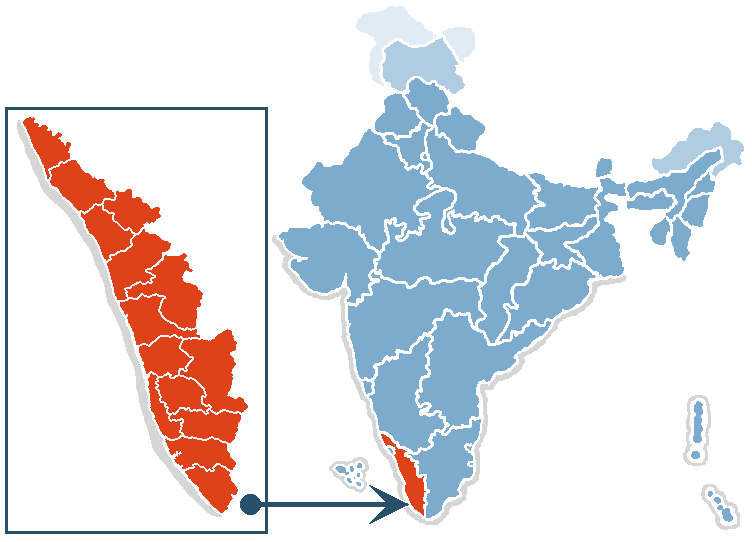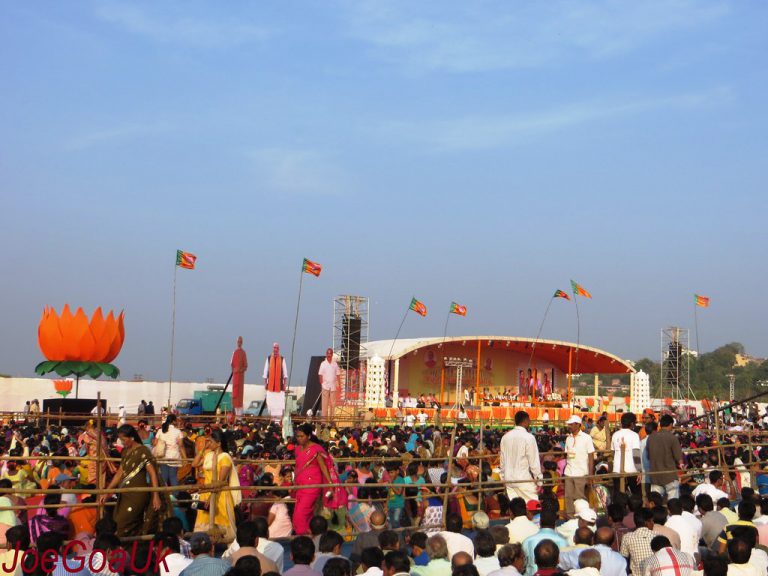Elections and Foreign Policy – A tightrope walk?
Anuraag is a ‘Contributing Writer’ at the journal.
As the 2024 Lok Sabha election process almost concluded, it might appear to be an appropriate time to evaluate the role played by Indian foreign policy in the electioneering campaigns played out in the preceding months.
While Pakistan and its support for cross-border terrorism and its designs upon Kashmir have traditionally been a recurring issue used by parties to score points against each other, the recent election season saw foreign policy topics feature prominently in the manifestoes and campaigns including the India-China clash in Galwan since 2020, the rescue of Indian students during the Russia- Ukraine war[i], the G20 summit in Delhi and India’s quest to become the Voice of the Global South[ii] to name a few.
This salience of foreign policy issues in the election campaigns as well as in the everyday conversations of the local populace has led some scholars to believe that the gap between ‘elite issues’ (foreign policy, national security, international trade) and ‘mass issues’ (development, job, inflation, price rise and welfare distribution)[iii] has been gradually removed. Events such as India’s 2023 leadership of the G20, the government’s ‘tough approach’ to Pakistan and a ‘rising India’ receiving its due recognition from both the West and others like Russia due to the efforts of PM Modi[iv] have entered the discussions in personal living rooms as well as in tea-stalls and auto-stands. It also helps that the current election season saw the ruling party highlighting its foreign policy achievements such as the Indian leadership of the G20 and the success of Operation Ganga or the evacuation of Indians from war-torn Ukraine while the Opposition criticized the incumbent on the latter’s failure to resolve the stand-off in Galwan despite 29 rounds of negotiations[v] between the commanders of both the armies as well as the failure to address the alleged occupation of around 2000 sq km of Indian territory by China[vi] (a claim disputed by the current government)− all these have added to the ubiquity of India’s external affairs in the election conversations.
However, the raking up of foreign policy issues or its usage for scoring political points at home is the proverbial double-edged sword which might also have adverse implications for the nation’s foreign policy interests if pushed too much. The article is an attempt to explore the tightrope nature of walking the fine balance while using foreign policy issues for electoral gains by parties.
The first instance which comes to mind is the revival of the Katchatheevu Agreement signed in 1974 between the then Indira Gandhi led Congress government of India and the Sirima R.D. Bandaranaike administration of Sri Lanka which saw the demarcation of the maritime boundary between India and Sri Lanka from the Adam’s Bridge to the Palk Strait. As per the agreement while the islet of Katchatheevu fell within the Sri Lankan boundary, the area of Wadge Bank near Kanyakumari was retained under Indian jurisdiction. However, the agreement was not received well by the then Opposition parties, especially the Tamil based parties such as AIADMK and DMK, the latter being in power in Tamil Nadu at the time[vii]. Fifty years later the issue was brought up again by the Twitter (X) handle of PM Modi on 31 March accusing the Congress government of ‘callously giving away’ Katchatheevu to Sri Lanka and the DMK party for not inadequate action is safeguarding the interest of Tamil Nadu[viii].
While the main motive behind bringing the spotlight back on the 1974 agreement was to score political points by the ruling BJP against the Congress and the DMK in Tamil Nadu, yet the political slugfest around it was enough to raise ripples and anxieties in neighbouring Sri Lanka. Such apparent claims for the ‘return of Katchatheevu’ were strongly refuted as ‘groundless’ by the Sri Lankan Fisheries minister Douglas Devananda[ix] and as a ‘resolved’ issue by Sri Lankan Foreign Minister Ali Sabry[x]. While both the ministers recognized the raising of Katchatheevu as nothing more than periodic election gimmick on the part of Indian political parties, yet the Sri Lankan media went into a frenzy criticizing the ‘dangerous and unnecessary provocation of a friendly neighbour that could have serious repercussions’ leading Colombo to ‘seek security guarantees elsewhere’ or ‘find friends’ elsewhere to protect against a ‘near foe’[xi].
The above outpouring of negative sentiments against India does not bode well for New Delhi’s newly acquired goodwill with Sri Lanka after decades of rule by the pro- Beijing Rajapakse administration and the resultant 2022 crisis which saw India help the island country through provision of credit line to the tune of 4 billion. This goodwill also saw Colombo refusing to allow Chinese ‘research’ (spy) vessels to dock in its ports or operate in its Exclusive Economic Zone (EEZ) as a sign of increasing security confidence between both the sides. At a time when China is increasingly flexing its muscle in India’s maritime backyard in the Indian Ocean aided by a pro- Beijing Maldives, New Delhi cannot risk to isolate Colombo and thereby force it to ‘seek security’ or ‘find friends’ elsewhere (in China) because of such politicking by Indian parties, especially the incumbent. Care must be taken that political aims are not pursued at the cost of adversely affecting national strategic interests.
Another major electoral issue which could have adverse implications for foreign policy goals is the rising tide of Hindutva communal sentiment against India’s Muslim population expressed markedly during the current election campaigning period. This was reflected in actions ranging from the attachment of labels such as ghuspethiya (infiltrators)[xii] to formulating ‘conspiracy theories’ of wealth distribution schemes aimed only at benefitting Muslims by snatching away the mangalsutra (locket worn by married Indian women) and other items from the private property of other communities[xiii] . In addition, mention was also made of ‘sinister plans’ to replace the Indian Constitution with Sharia by the ‘pro- minority’ Congress party[xiv]− all of which only added to highlight the vulnerable state of the Indian Muslim population despite attempts at outreach towards certain sections of Muslims by the BJP[xv].
The above situation has not been lost on the countries of West Asia especially the Gulf with whom India’s partnerships have acquired new strategic importance in terms of energy supplies, trade and investment and the presence of a sizeable Indian diaspora in these countries. Not to mention events such as the Red Sea crisis and the recent India- Iran deal on Chabahar port in May 2024 which has added new dimensions to ties between New Delhi and the Middle East which cannot be sacrificed at the altar of party ideology.
Normally the ruling dispensations in Gulf countries have often overlooked the Hindutva moorings of the government in view of the larger picture of the Indo- Gulf strategic partnership. Yet the occasional outbursts of Hindutva extremist sentiments such as putting the blame for the spread of n-COVID 19 squarely on Tablighi jamaat as a form of jihad (holy war) in 2020 or the derogatory comments made against Prophet Muhammad by BJP’s ‘fringe elements’ like Nupur Sharma in 2022 had put New Delhi’s position in West Asia as well as its relations with the countries there at risk and produced a ‘very serious crisis’ as per former Indian ambassador to the Gulf countries Talmiz Ahmed[xvi]. At the same time, the reach and extent of social media have also magnified the visibility of such incidents among the Muslim populations in West Asia which might have the potential to sour the growing Indian partnership with these countries. The latter might pressurize their rulers to cut off or minimize ties with New Delhi as was seen in Qatar and Kuwait in 2022[xvii]. This would be detrimental to Indian interests in West Asia as outlined above and even impede ambitious projects such as the India Middle East Europe Economic Corridor (IMEC)− a key component of the foreign policy section on BJP’s manifesto[xviii]. Moreover, any negative perception of India born from the above fringe actors or incidents will be banked upon by Pakistan to undercut Indian influence in West Asia.
Finally, a last example pertains to the strains which have appeared in the ties between India and the West especially the US during the current election season. A major reason behind these tensions have been the Western countries, especially the US’s think tanks and newspapers increasing focus on allegations of democratic backsliding and the rise of ‘electoral autocracy’ in India, doomsday predictions on the ‘end of Indian democracy’ and claims of the ‘dangerous situation of minorities’ in India− a topic often discussed in human rights reports released by the US and EU[xix] in the months following the elections.
At the same time, there have been levelled allegations of undue Western interference and influence campaigns in the current Indian elections especially by both the Prime Minister and EAM S Jaishankar. Both have opined about ‘certain powers (who) are interested in seeing a weak government come to power’[xx] to stall India’s rise and a ‘global elite (mostly Western powers) getting upset when their preferences (candidates backed by the global elite) are not elected’[xxi]. Although there have emerged reports of the circulation of misinformation using AI generated content in the current Lok Sabha elections apparently by an Israeli political firm STOIC[xxii] and warnings by Microsoft of potential Chinese disruption of Indian elections using AI[xxiii] thereby providing some credibility to the above claims, yet this is beside the point of the article.
What matters for the article is the increasing sense of anti- Western sentiment generated among the masses. This has found expressions in the form of conspiracy theories online across social media platforms accusing the Opposition especially the Congress party and its entire leadership as being nothing more than stooges of the West, ‘the Catholic Church’ etc thereby discrediting the party in its entirety. Such a weakened and discredited opposition is not good for a vibrant democracy like ours and will provide further fodder to the biased media outlets to attack the democratic credentials of India. Moreover, while such sentiments have not put in jeopardy the current going strategic alignment between India and the West, especially the US yet in the long run a surging anti Westernism might prove to be a roadblock to pursuing robust ties with the West[xxiv]. While the presence of China has kept the Indo- US ties buoyant for now, a strong anti-Western Indian public in the future might prove to be a challenge to the continuity of the above relationship in a post- China world. Coming to the present, such popular sentiments would also have adverse implications upon India’s proclaimed role as a ‘bridge’ between the West and the Global South as opposed to the hardliner ‘anti-West’ stance of New Delhi’s top competitor China[xxv].
The above is not to imply that New Delhi should not stand up to protect its own legitimate interests at the face of undue Western intimidation in instances such as the latter’s opposition to India refusing to cut off its longstanding ties with Russia in 2022 and the recent US sanction threat against Indian companies operating Chabahar in Iran. But for the sake of electoral gain, parties should not overtly antagonize the West as being involved in every conspiracy to ‘destroy India’ hands-in-glove with the Opposition parties.
On their part, the Western countries should show the same level of maturity as exhibited by the Sri Lankan ministers cited above by understanding the nature of claims made during elections and stop attaching too much value to statements uttered in the heat of campaigning such as ‘ghar mein ghuske marenge’ [we will kill terrorists by entering their homes (countries)][xxvi]− aimed at Pakistan instead of the West. At the same time parties in India should try to refrain from politicizing the activities of intelligence agencies to score points at home which compromises the covert nature of such operations and adversely affect national security and image. As regards speculation regarding the ‘health’ of Indian democracy, the Western parties should avail of opportunities such as the invitation extended by the ruling BJP to 25 parties of nations including UK, Nepal, Bangladesh, Tanzania, Uganda, Sri Lanka, and Mauritius to observe the Lok Sabha elections[xxvii] and see for themselves the veracity of reports on the apparent ‘decline of democracy’ in India.
While elections are seen as the ‘carnival of democracy,’ it should be ensured that the actions of its performers do not burn down the entire town. Similarly, parties and their candidates should ensure that the fiery sparks lit in rallies do not go out of control and burn the bridges India’s foreign policy establishment have tirelessly built with its near and extended neighbourhood and with the wider world[xxviii].
References
- ‘Operation Ganga brings back over 3700 Indians’, The Hindu, 4 March, 2022 (https://www.thehindu.com/news/national/over-3700-indians-return-on-17-flights-as-part-of-operation-ganga/article65190596.ece).
- ‘Voice of Global South Summit 2023’, Ministry of External Affairs, Government of India (https://www.mea.gov.in/voice-of-global-summit.htm#:~:text=Voice%20of%20Global%20South%20Summit%20has%20been%20India’s%20endeavour%20to,addressing%20the%20concerns%20and%20priorities.)
- Varsney, Ashutosh, ‘Mass politics or elite politics? India’s economic reforms in contemporary perspective’, The Journal of Policy Reform, vol.2, pp. 301-335, see p. 302.
- ‘Going abroad, Modi receives a Gift for Image- Building at Home’, The New York Times, 23 June, 2023 (https://www.nytimes.com/2023/06/23/world/asia/modi-india-us-visit-g20.html).
- ‘India- China hold fresh round of diplomatic talks with no breakthrough’, Hindustan Times, 28 March, 2024 (https://www.hindustantimes.com/india-news/india-china-hold-fresh-round-of-diplomatic-talks-with-no-tangible-breakthrough-101711594196899.html).
- ‘Congress slams Amit Shah for giving ‘clean chit’ to China on ‘encroachment’ on Indian soil’, The Economic Times, 10 April, 2024 ( https://economictimes.indiatimes.com/news/elections/lok-sabha/india/congress-slams-amit-shah-for-giving-clean-chit-to-china-on-encroachment-on-indian-soil/articleshow/109169243.cms?from=mdr).
- ‘Katchatheevu- What is the controversy all about?’, The Hindu, 1 April, 2024 (https://www.thehindu.com/news/national/katchatheevu-what-is-the-controversy-all-about/article68015993.ece).
- ‘Congress ‘callously’ gave away Katchatheev island: PM Modi’, The Hindu, 31 March, 2024 (https://www.thehindu.com/news/national/katchatheevu-island-sri-lanka-congress-pm-modi/article68012159.ece).
- ‘No ground’ for Indian request for return of Katchatheevu: Sri Lanka Minister’, The Hindu, 5 April, 2024 ( https://www.thehindu.com/news/international/no-ground-for-indian-request-for-return-of-katchatheevu-sri-lanka-minister/article68033127.ece).
- ‘Katchatheevu issue: No need for talks with India on ‘resolved’ issue, says Sri Lankan Foreign Minister’, The Hindu, 4 April, 2024 (https://www.thehindu.com/news/international/no-need-for-talks-with-india-on-resolved-katchatheevu-issue-says-lankan-foreign-minister/article68028425.ece#:~:text=Sri%20Lanka%20sees%20no%20reason,and%20External%20Affairs%20Minister%20S.)
- ‘Sri Lankan media hit out at Modi’s Katchatheevu remarks’, The Hindu, 2 April, 2024 (https://www.thehindu.com/news/international/sri-lankan-media-hit-out-at-modis-katchatheevu-remarks/article68020552.ece).
- ‘United Muslim Forum criticizes PM Modi’s ghuspeti remark’, The Hindu, 25 April, 2024 (https://www.thehindu.com/elections/lok-sabha/united-muslim-forum-criticizes-pm-modis-ghuspeti-remarks/article68102933.ece).
- ‘On PM Modi’s Mangalsutra remark, Priyanka Gandhi points to Mother, Grandmother’, NDTV, 24 April, 2024 (https://www.ndtv.com/india-news/lok-sabha-election-2024-my-mother-sacrificed-her-mangalsutra-for-india-priyanka-gandhi-amid-row-5507644).
- ‘Country will be run by Baba Saheb’s Constitution not by ‘Sharia law’: UP CM Yogi’, ANI, 27 May, 2024 (https://www.aninews.in/news/national/general-news/country-will-be-run-by-baba-sahebs-constitution-not-by-sharia-law-up-cm-yogi20240527235835/).
- ‘Eyeing Muslim outreach, U.P. BJP’s minority wing to start ‘Qaumi Chaupal’ campaign from Muzaffarnagar’, The Hindu, 3 February, 2024 (https://www.thehindu.com/news/national/eyeing-muslim-outreach-up-bjps-minority-wing-to-start-qaumi-chaupal-campaign-from-muzaffarnagar/article67808243.ece).
- ‘Full Text: It is a very serious crisis’- Talmiz Ahmed on India’s ties with the Muslim World’, The Wire, 16 June, 2022 (https://thewire.in/diplomacy/full-text-it-is-a-very-serious-crisis-talmiz-ahmad-on-indias-ties-with-the-muslim-world).
- ‘Calls to boycott Indian goods grow as derogatory remarks on Prophet riles Middle East’, The Print, 8 June, 2022 (https://theprint.in/world/calls-to-boycott-indian-goods-grow-as-derogatory-remarks-on-prophet-riles-middle-east/988753/).
- Modi ki Guarantee Sankalp Patra, see p. 35 (https://www.bjp.org/files/inline-documents/Modi-Ki-Guarantee-Sankalp-Patra-English_0.pdf).
- Talukdar, Sreemoy, ‘How deep was Western interference in 2024 elections? Enough smoke that warrants a thorough probe’, Firstpost, 4 June, 2024 ( https://www.firstpost.com/opinion/how-deep-was-western-interference-in-2024-elections-enough-smoke-that-warrants-a-thorough-probe-13778354.html).
- ‘Watch: Foreign interference in Indian elections- Is there a basis for India’s fears?’, The Hindu, 26 April, 2024 (https://www.thehindu.com/news/international/watch-foreign-interference-in-elections-is-there-a-basis-for-indias-fears/article68110476.ece).
- ‘Jaishankar’s Biggest Election Interview with Arnab Goswami, opens up on Canada Row, Pakistan’, Republic World, 8 April, 2024 (https://www.youtube.com/watch?v=H4dk3Poqv6g).
- ‘Israel firm tried to interfere in India’s Lok Sabha elections’, says Open AI’, The Mint, 1 June, 2024 (https://www.livemint.com/news/india/israel-firm-tried-to-interfere-in-india-s-lok-sabha-elections-says-openai-11717212819467.html).
- ‘China may disrupt elections in India using AI, warns Microsoft’, The Economic Times, 08 April, 2024 (https://economictimes.indiatimes.com/news/elections/lok-sabha/india/china-may-disrupt-elections-in-india-using-ai-warns-microsoft/articleshow/109135055.cms?from=mdr).
- Vaishnav, Milan & Mallory, Caroline, ‘In India, Foreign Policy is on the 2024 ballot’, Carnegie Endowment for International Peace, 12 April, 2024 (https://carnegieendowment.org/research/2024/04/in-india-foreign-policy-is-on-the-2024-ballot?lang=en).
- Jacob, Happymon, ‘How to thwart China’s bid to lead the Global South’, Foreign Affairs, 25 December, 2023 (https://www.foreignaffairs.com/china/how-thwart-chinas-bid-lead-global-south).
- ‘US reacts to PM Modi’s ‘ghar mein ghus kar…’ statement on terrorism’, Hindustan Times, 17 April, 2024 (https://www.hindustantimes.com/india-news/us-reacts-to-pm-modis-ghar-mein-ghus-kar-statement-on-terrorism-101713312781667.html).
- ‘LS polls: BJP invites 25 global parties to observe election, its campaign’, Business Standard, 11 April, 2024 (https://www.business-standard.com/elections/lok-sabha-election/ls-polls-bjp-invites-25-global-parties-to-observe-elections-its-campaign-124041100111_1.html).
- ‘For a consensus: On campaigning rhetoric and foreign policy’, The Hindu, 3 June, 2024 (https://www.thehindu.com/opinion/editorial/for-a-consensus-the-hindu-editorial-on-campaigning-rhetoric-and-foreign-policy/article68242810.ece


